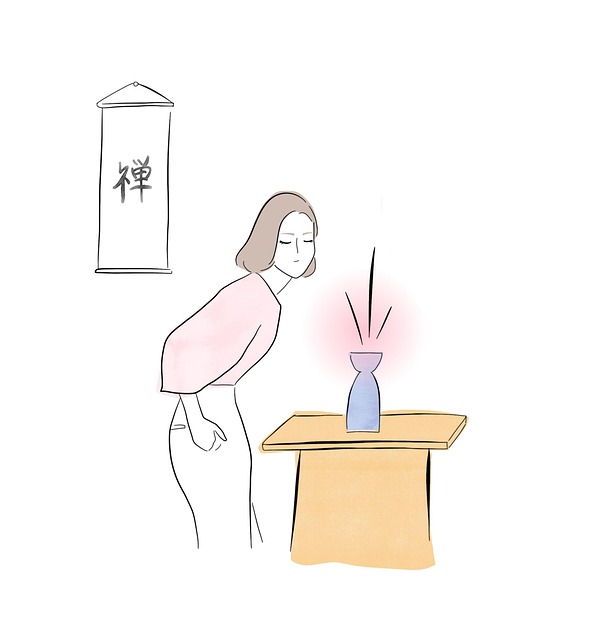Self-care through evidence-based practices like Somatic Experiencing (SE) therapy is crucial for young children's mental health, helping them manage stress and trauma. SE guides kids to explore and release stored energy from traumatic events, improving emotional regulation. Incorporating self-care in daily routines, including mindfulness, relaxation techniques, and play, enhances overall well-being. Organizations offer programs like Stress Management Workshops to empower young individuals with these essential tools, fostering better conflict resolution, resilience, and emotional intelligence.
Self-care is not a luxury but an essential practice, especially for young children whose developing minds and bodies require nurturing. This article explores various aspects of self-care improvement, focusing on the significance of understanding its importance in childhood development. We delve into Somatic Experiencing, a therapy approach targeting emotional well-being, and practical strategies to integrate self-care into daily routines. Additionally, we discuss the role of mindfulness and play in enhancing these practices.
- Understanding the Importance of Self-Care for Young Children
- Somatic Experiencing: A Therapy Approach for Emotional Well-being
- Practical Strategies to Incorporate Self-Care in Daily Routines
- The Role of Mindfulness and Play in Enhancing Self-Care Practices
Understanding the Importance of Self-Care for Young Children

Self-care isn’t merely a luxury—it’s an essential aspect of healthy development for young children. In today’s fast-paced world, even kids face various stressors that can impact their emotional well-being. Incorporating self-care practices early on can help young minds navigate and manage these challenges effectively. Therapy techniques like Somatic Experiencing play a pivotal role in this process, teaching children coping skills to deal with everyday stress and even traumatic events.
By integrating self-care into their routines, young individuals can enhance their ability to resolve conflicts, develop resilience, and foster healthy relationships. Organizations are increasingly recognizing the importance of these practices, offering Stress Management Workshops and other engaging activities that empower kids to become proactive in their mental health. Equipping children with the right tools at a young age paves the way for better emotional regulation and overall well-being throughout their lives.
Somatic Experiencing: A Therapy Approach for Emotional Well-being

Somatic Experiencing is a therapy approach that focuses on the deep connection between our bodies and emotions. This method has gained popularity as a powerful tool for enhancing emotional well-being, particularly in young children. By utilizing Somatic Experiencing techniques, therapists help clients develop a deeper awareness of their physical sensations and respond to traumatic or stressful events in a healthier way.
The therapy involves guiding individuals through exercises that encourage them to explore and release stored trauma energy, leading to improved emotional regulation. This approach is beneficial for those seeking a confidence boost and effective crisis intervention guidance. Somatic Experiencing allows children to process their feelings and experiences in a safe environment, fostering better coping mechanisms and overall mental health.
Practical Strategies to Incorporate Self-Care in Daily Routines

Incorporating self-care into daily routines is a powerful step towards enhancing mental wellness for young children and their families. Simple yet effective strategies can make a significant difference, especially when supported by evidence-based practices like Somatic Experiencing (SE). SE therapy encourages individuals to connect with their bodies’ natural capacity for healing, fostering a sense of safety and grounding. This can be incorporated into daily life through mindful activities such as deep breathing exercises or sensory play, which help children regulate emotions and manage stress.
A practical approach to self-care involves setting aside dedicated time for relaxation and reflection. Community outreach programs can provide valuable resources like guided meditation sessions or yoga classes tailored for young minds. Additionally, keeping a mental wellness journal is an excellent way to track moods, thoughts, and triggers. This journaling exercise guidance can empower children and parents alike to identify patterns and implement coping mechanisms, ultimately leading to improved stress management skills.
The Role of Mindfulness and Play in Enhancing Self-Care Practices

Mindfulness and play are powerful tools that can significantly enhance self-care practices, especially for young children. Incorporating mindfulness techniques such as meditation and deep breathing exercises allows children to develop a stronger connection with their emotions and bodies, fostering a sense of calm and awareness. This practice is akin to the principles of Somatic Experiencing, where individuals learn to recognize and process physical sensations as a means of healing emotional trauma. By integrating mindfulness into daily routines, children can better manage stress and anxiety, which are significant factors in depression prevention.
Moreover, play serves as a natural therapy for young minds, offering a creative outlet for expression and self-exploration. Engaging in imaginative play encourages children to tap into their innate curiosity and emotional intelligence, promoting healthy coping mechanisms. Cultural sensitivity in mental healthcare practice can be enhanced by recognizing the diverse ways in which children express themselves through play. This inclusive approach ensures that all children, regardless of their background, receive support tailored to their unique needs, contributing to overall well-being and burnout prevention strategies for healthcare providers.
Incorporating self-care practices into our lives, especially for young children, is a crucial aspect of overall well-being. As highlighted in this article, understanding and prioritizing self-care can have profound effects on emotional health. Therapies like Somatic Experiencing offer valuable tools to process and release traumatic memories, while practical strategies provide an accessible framework to integrate self-care into daily routines. By fostering mindfulness and play, we can enhance these practices, ensuring a healthier and happier future for children.








